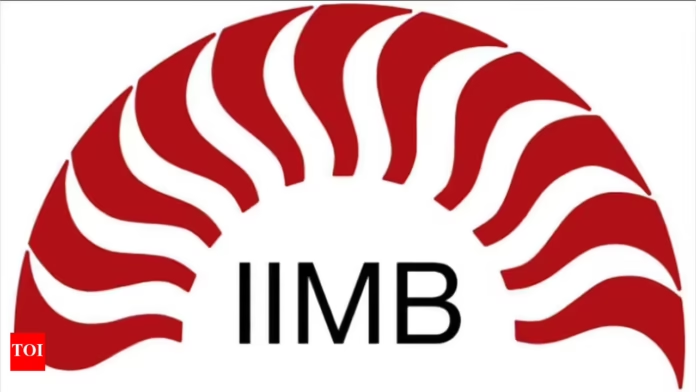25 June, 2025, Bengaluru: The Economics area at IIM Bangalore will host the second edition of the Symposium on Evidence of Economic Development (SEED) on 28 and 29 June, 2025, in Classroom P-22 at IIMB. The two-day event will bring together a distinguished group of researchers from across the world to share empirical research work spanning behavioural economics, firm dynamics, and developmental outcomes.
The event is jointly curated by Prof. Pavel Chakraborty, University of Lancaster, Prof. Anindya Chakrabarti, IIM Ahmedabad, and Prof. Ritwik Banerjee, Chairperson of the Economics Area at IIMB. The first edition of the symposium was held at IIM Ahmedabad.
Agenda for the two-day event
Prof. U. Dinesh Kumar, Dean of Faculty and Chairperson of the Data Centre and Analytics Lab (DCAL) at IIMB, will deliver the inaugural address.
Session 1 on Behaviour will open with “When Science Feels Like Math: The Role of Quantitative Framing in Science Gender Gaps” by Prof. Tarun Jain, IIM Ahmedabad. Who investigates the impact of math-intensive evaluation on gender disparities in science. This will be followed by Prof. Shilpa Aggarwal, ISB, presenting ‘A Road for all Seasons: Market Access and Inter-temporal Arbitrage in Rural India’, a study examining how a large-scale rural road infrastructure programme, connecting previously unlinked villages to market centres, affects inter-temporal price volatility in Indian agricultural markets.
Also Read: Quantum Sensing Hub at IIT Bombay kick-offs operations
Session 2 on Behaviour will begin with ‘Achieving Peace in Conflicts with Spillovers’ by Prof. Moumita Roy, Ahmedabad University. Her talk will explore strategic behaviour in conflicts where individual efforts have positive or negative spillover effects on rivals’ payoffs. This will be followed by ‘Bureaucrat Assignment Mechanisms: Theory and Evidence’ by Prof. Jeevant Rampal, IIM Ahmedabad. It analyses the mechanisms used to assign senior Indian bureaucrats to administrative cadres across the country.
Session 3 on Firms will feature ‘Spillover Effects in Complementary Markets: A Study of the Indian Cellphone and Wireless Service Markets’. By Prof. Debi Prasad Mohapatra, UMass Amherst. The session will continue with ‘Identity, Market Access, and Demand-led Diversification’ by Prof. Akhil Ilango, Young Faculty Research Chair, IIMB. Which examines the intersection of social identity, access to markets, and diversification strategies.
The final sessions for Day 1 will begin with ‘Credit Supply Shocks, Firm Performance, and Aggregate Productivity Growth’. By Dr. Vidhya Soundararajan, Centre for Advanced Financial Research and Learning (CAFRAL). The study evaluates India’s Prompt Corrective Action (PCA) framework and its effect on bank health and firm-level outcomes. The day will conclude with an assessment on ‘Trade Costs and Industrialization’. By Prof. Kunal Dasgupta, Chairperson, Admissions & Financial Aid, IIMB. Offering insight into how internal and external trade costs influence industrialization using data from India’s organised manufacturing sector.
On Day 2, the focus will shift to Development. Prof. Tanika Chakraborty, IIM Calcutta, will present ‘The Roads to Hospital and Healthcare Access’. Which explores the complementarity between public goods. Its implications for the low uptake of social insurance schemes in India, despite high out-of-pocket medical expenditure. Prof. Yatish Arya of Ashoka University will deliver a presentation on ‘Green Spaces for Saffron Growth’.
The second half of Day 2 will begin with ‘Consumption and Borrowing: Land-holding Inequality and the Effects of Cash Transfers’, by Prof. Abhishek Shaw, Azim Premji University. The paper explores whether land inequality alters the impact of cash transfers on household borrowing and consumption. The symposium will close with a presentation on ‘Attitudes and Norms about Intimate Partner Violence: What Makes Women More Impressionable?’ by Prof. Manini Ojha, Jindal Global University, which evaluates the causal effect of neighbourhood-level attitudes on individual acceptance of intimate partner violence, drawing on nationally representative data from the fifth wave of the National Family Health Survey of India.
Platforms like EasyShiksha.com offer valuable courses that can help you gain the necessary skills.

































































